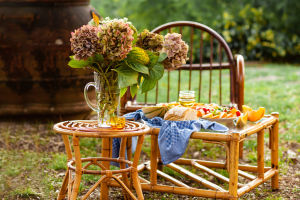Camping offers children a unique opportunity to disconnect from screens and immerse themselves in the natural world.
In today's digital age, where technology often dominates, the importance of allowing children to experience nature firsthand cannot be overstated.
Not only does camping provide fun, but it also fosters a deep connection to the environment, creating lasting memories and life skills!
1. Hands-On Nature Exploration
When children camp, they are not just passive observers; they actively engage with nature. Many campgrounds offer guided hikes, nature scavenger hunts, and bird-watching tours where children learn about local flora and fauna.
In particular, national parks such as Yellowstone or the Great Smoky Mountains offer educational programs where kids can identify tree species, learn about the water cycle, and even track animal footprints. This hands-on learning approach enhances their observation skills and cultivates a lifelong curiosity about the natural world.
2. Practical Skills Development
Camping also helps children acquire valuable life skills. Setting up a tent, cooking meals over a campfire, and maintaining their gear foster independence and problem-solving. Activities like building a fire or using a compass to navigate through the woods can teach children resourcefulness and resilience.
Furthermore, these tasks often require teamwork, helping children develop cooperation and communication skills. Programs like Junior Ranger programs in national parks or 4-H camps are specifically designed to teach kids these practical, hands-on skills while keeping them engaged in the outdoors.
3. Increased Environmental Awareness
Spending time in nature allows children to gain a deep understanding of environmental issues. When children hike through lush forests or snorkel in coral reefs, they learn the importance of preserving these ecosystems. Many camps are now integrating environmental education into their activities.
For example, the Sierra Club’s "Family Camping" programs teach kids about sustainability, waste reduction, and the impact of climate change. Experiencing nature up close often sparks a lifelong commitment to eco-friendly practices, such as recycling, conserving water, and minimizing plastic use.
4. Physical and Mental Health Benefits
Camping is not only beneficial for mental well-being but also for physical health. Hiking through forests, swimming in lakes, and playing outdoor games like capture the flag or frisbee help children stay active and improve their cardiovascular health. Research from the University of Essex suggests that spending time in natural environments reduces stress and anxiety, boosts mood, and improves concentration.
These benefits are particularly valuable in today’s world, where many children spend too much time indoors, leading to issues like digital addiction, obesity, and attention disorders. Outdoor activities promote physical fitness while providing a natural remedy for many of the challenges children face.
5. Strengthening Family Relationships
Camping is also an excellent way to strengthen family bonds. Without the usual distractions of everyday life, such as work or school, families have the opportunity to connect in a more meaningful way. Campground activities, such as cooking meals together, telling stories around the campfire, or stargazing, promote togetherness and cooperation.
Additionally, family camping trips encourage kids to learn important lessons in teamwork. Whether it’s sharing chores, collaborating on a hike, or managing equipment, camping fosters a spirit of camaraderie that translates into stronger family relationships.
Dear Lykkers! Camping is a unique experience that offers children the chance to forge a connection with nature, develop practical skills, and gain a deeper understanding of environmental conservation. By spending time in nature, children not only improve their physical and mental health but also learn valuable life skills such as independence, teamwork, and sustainability. Furthermore, camping strengthens family bonds, providing the opportunity for shared experiences and lasting memories.
In an age dominated by screens and technology, camping is an invaluable way to reconnect with the world around us. It is an experience that shapes future generations, teaching them to respect and protect the environment for years to come!

